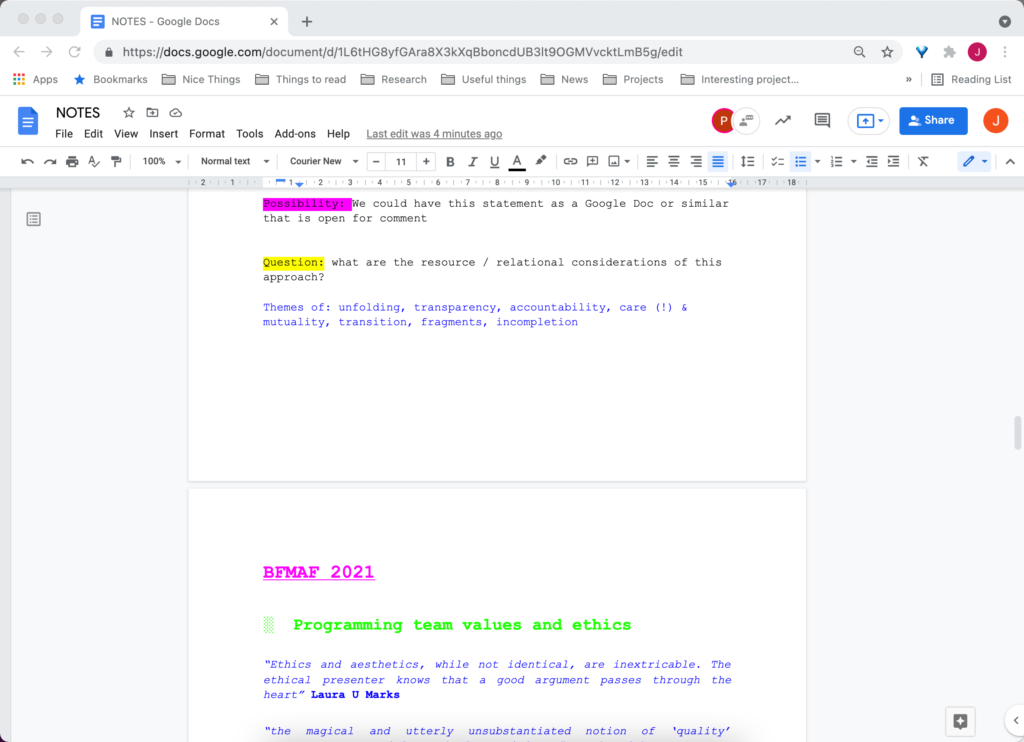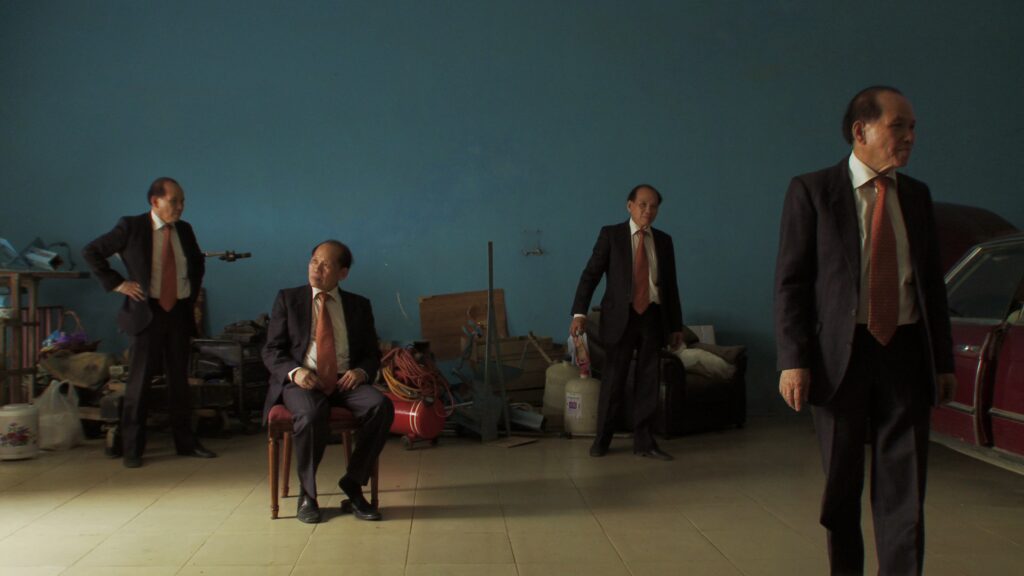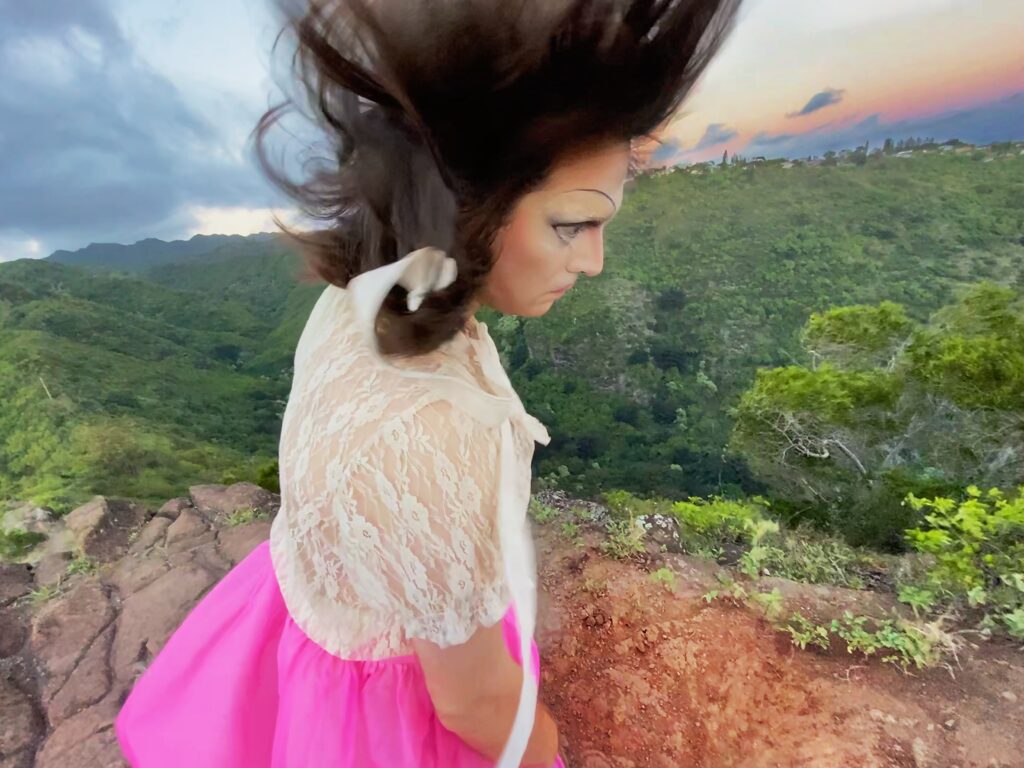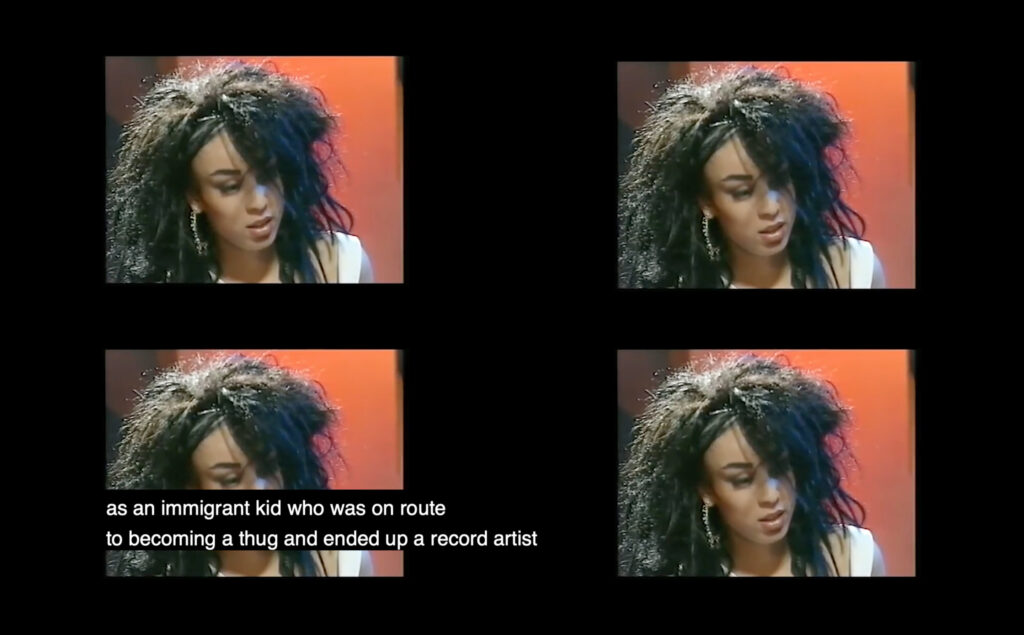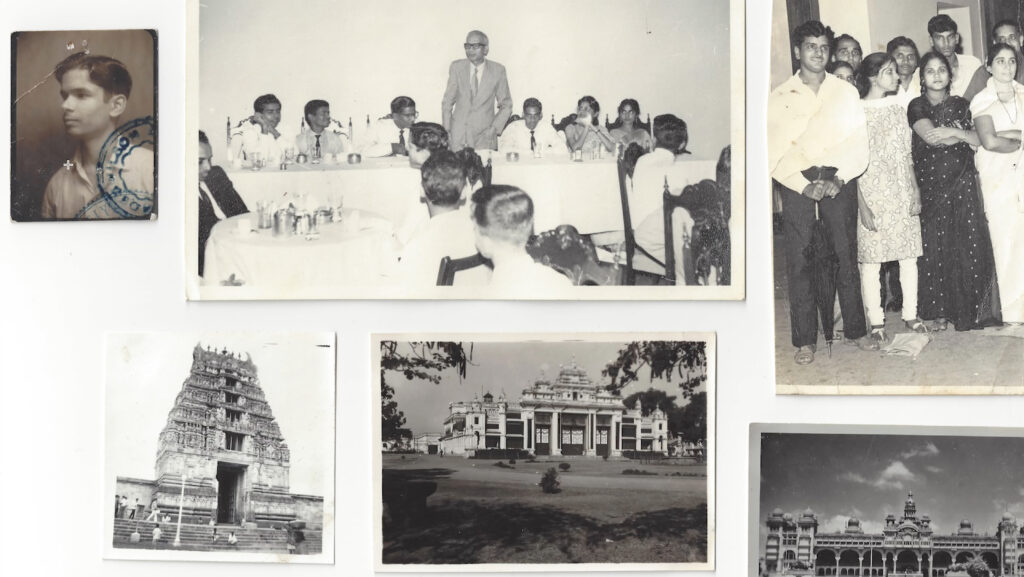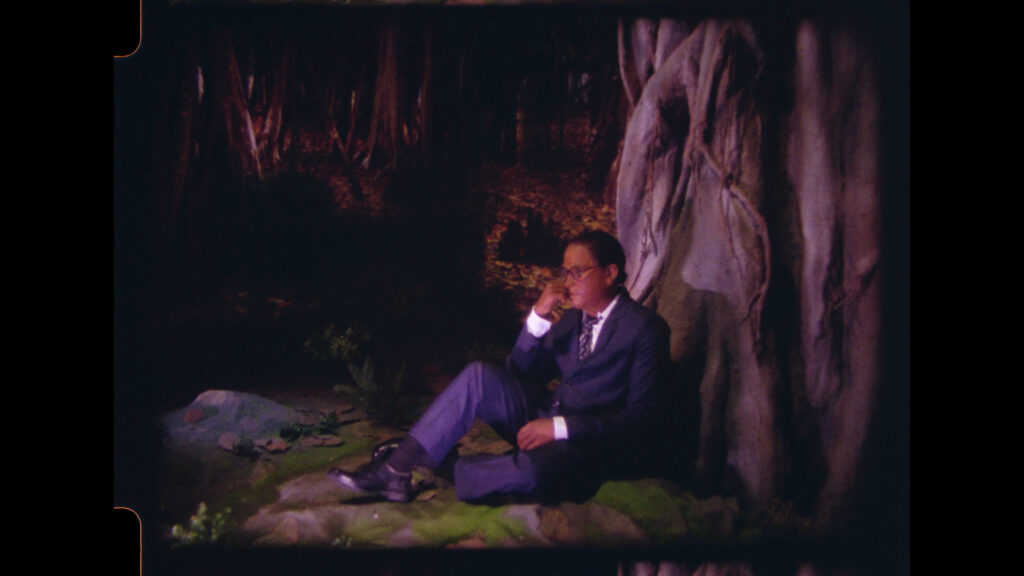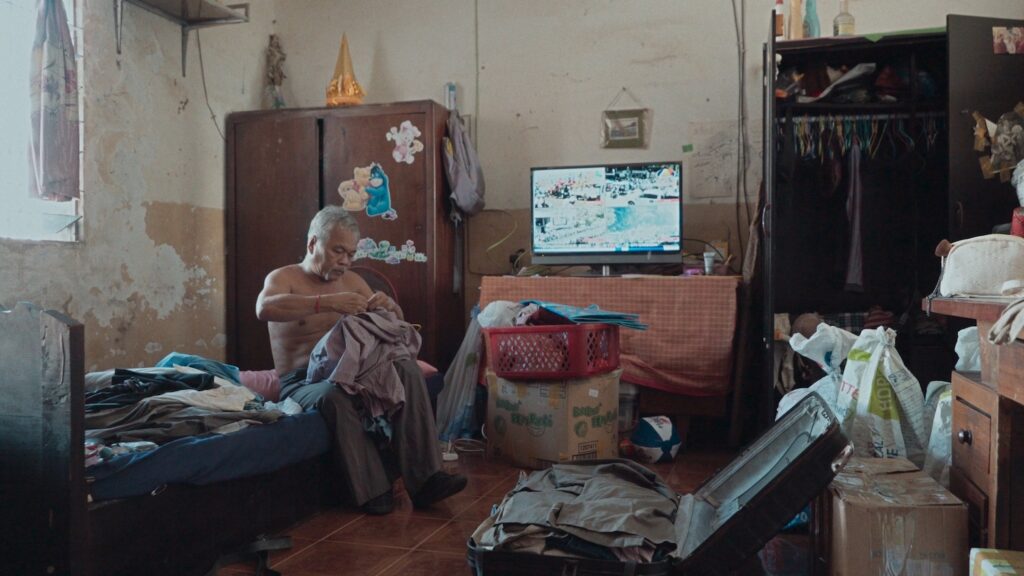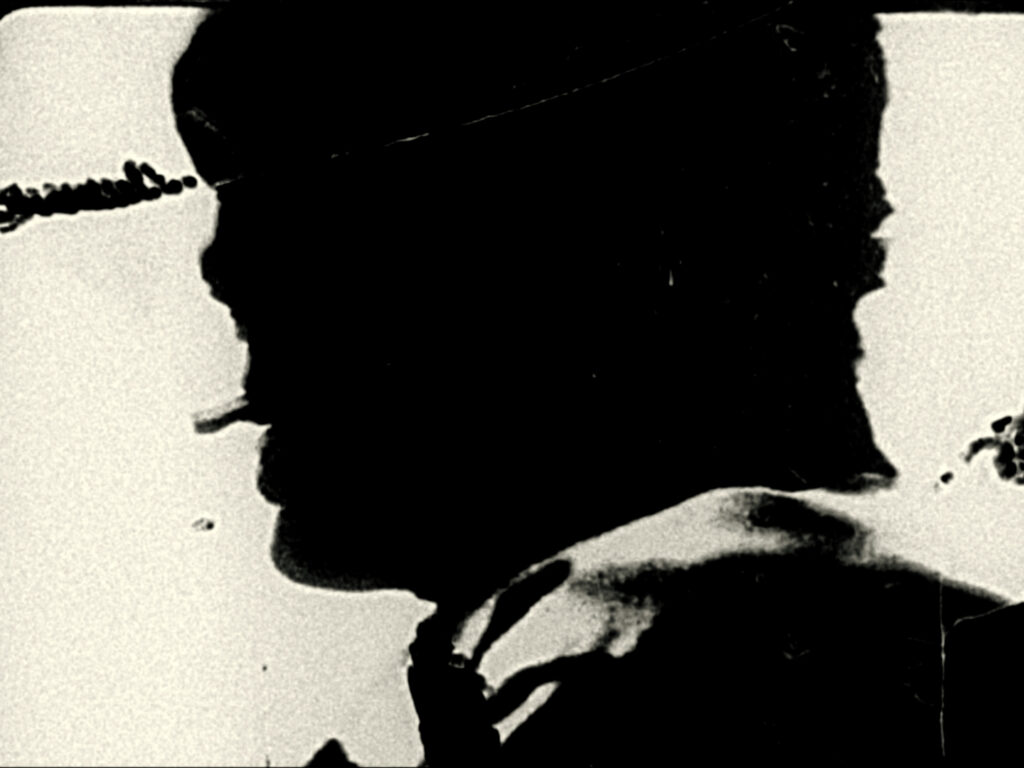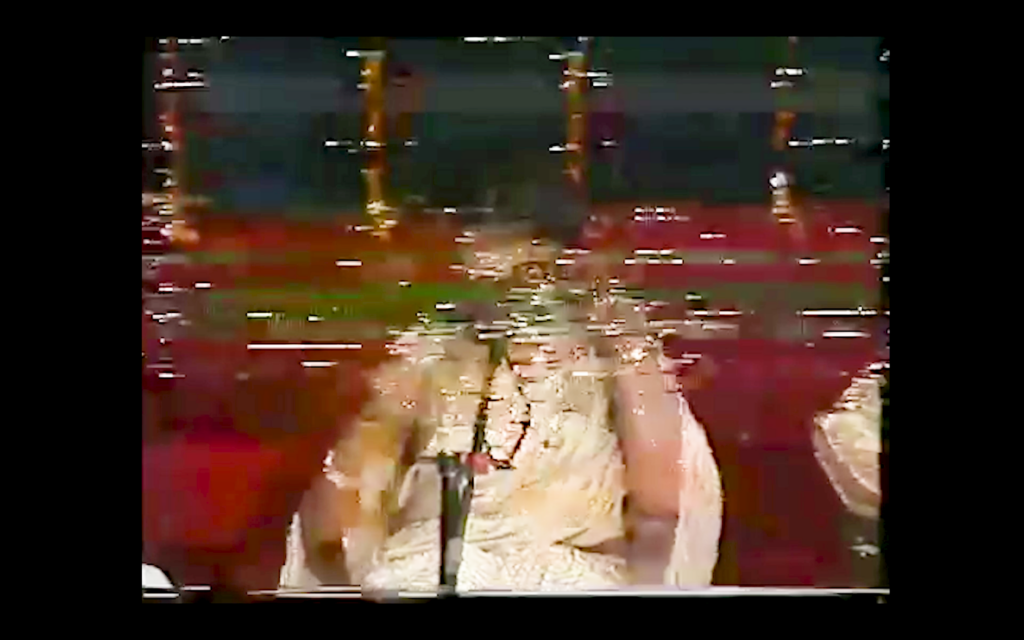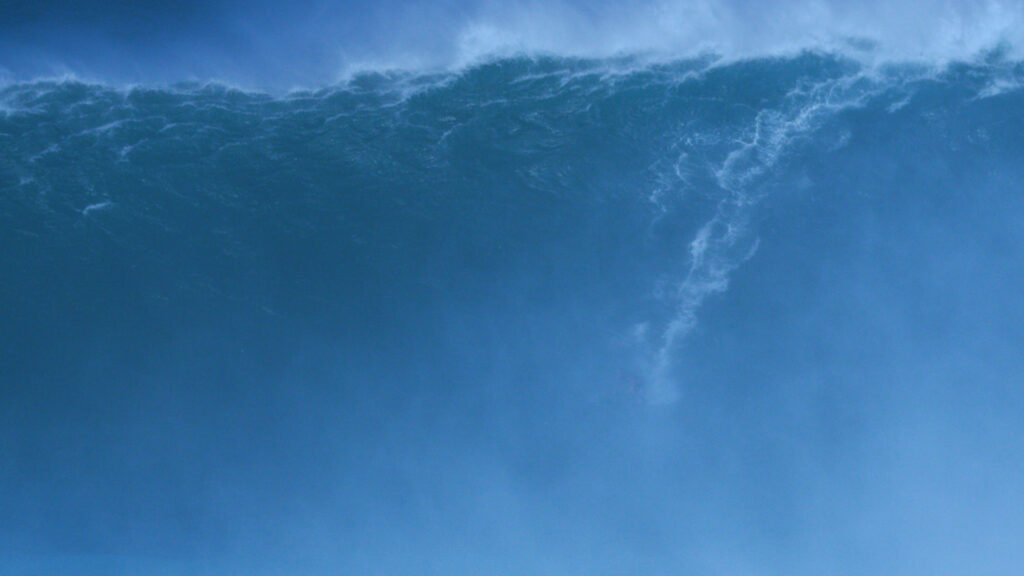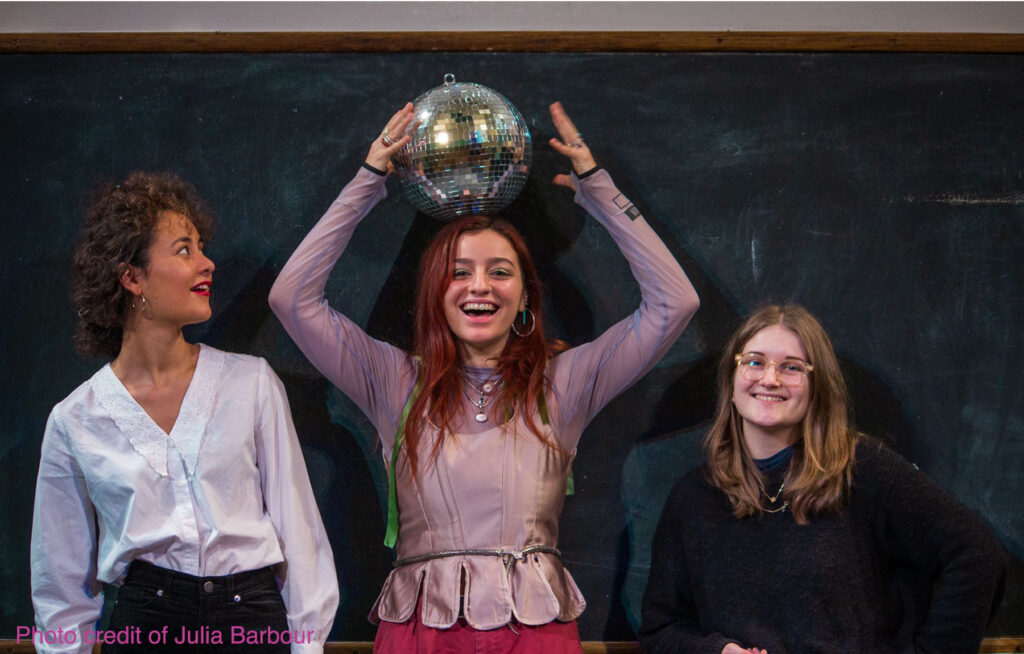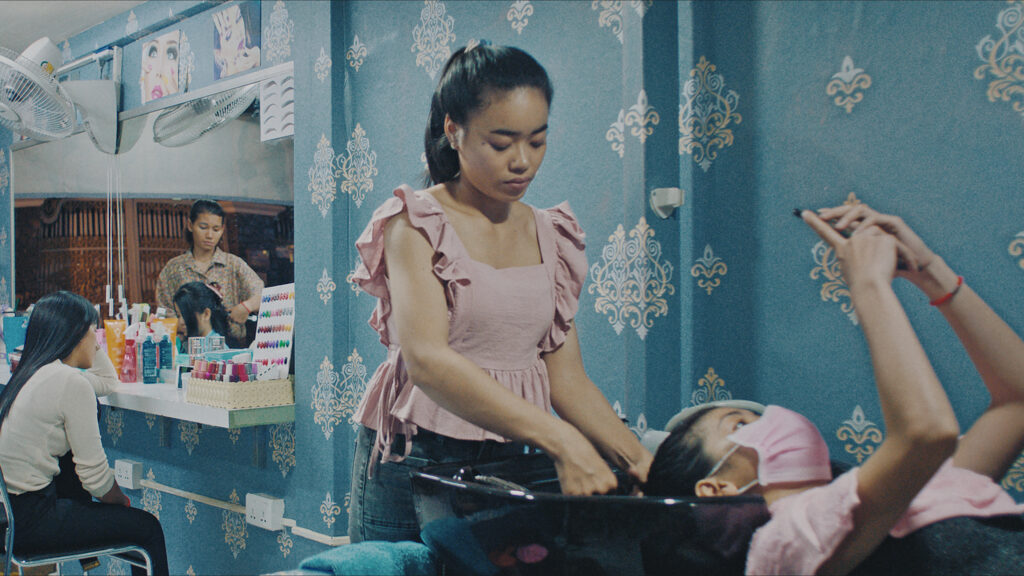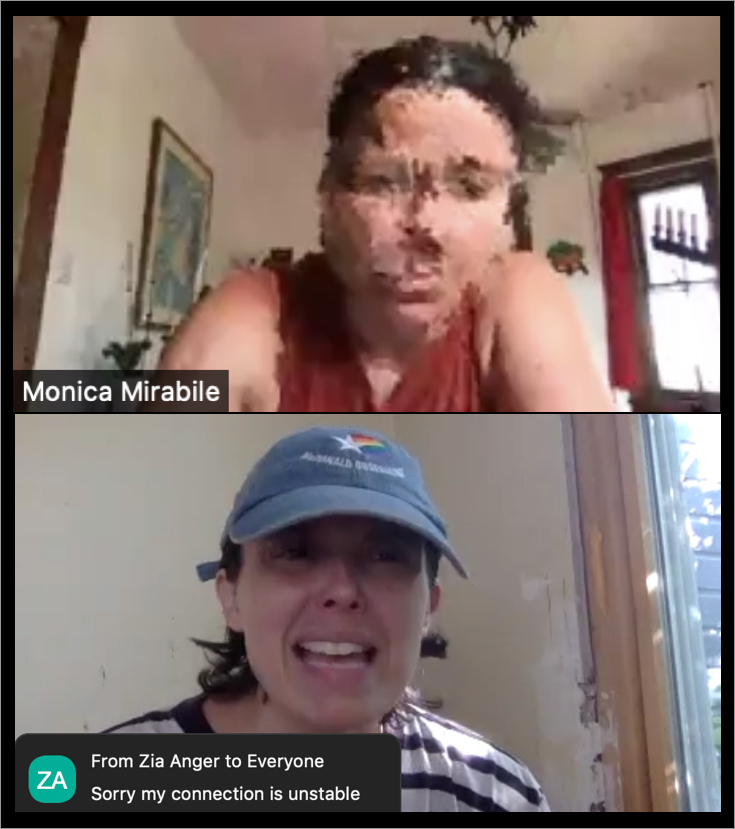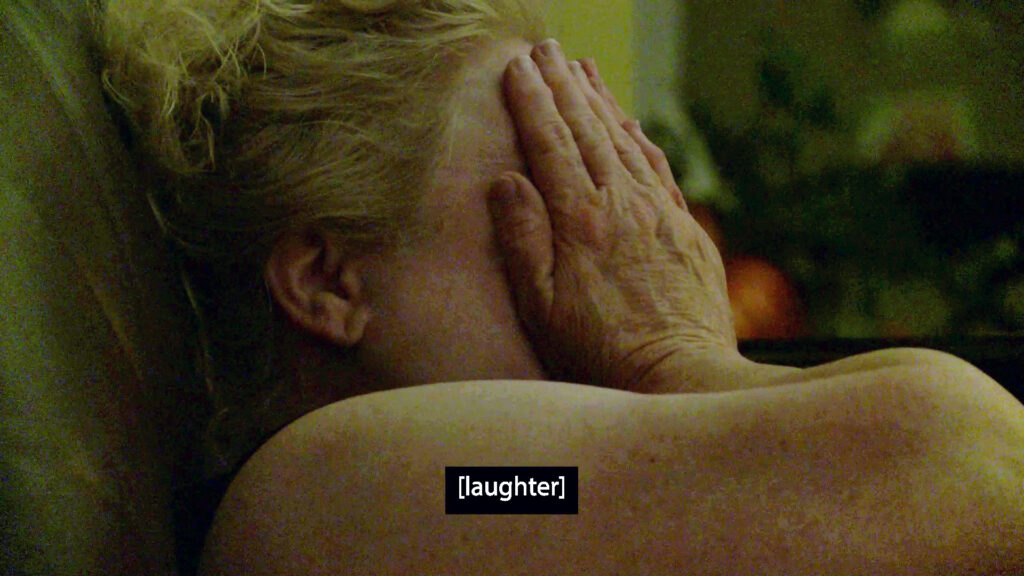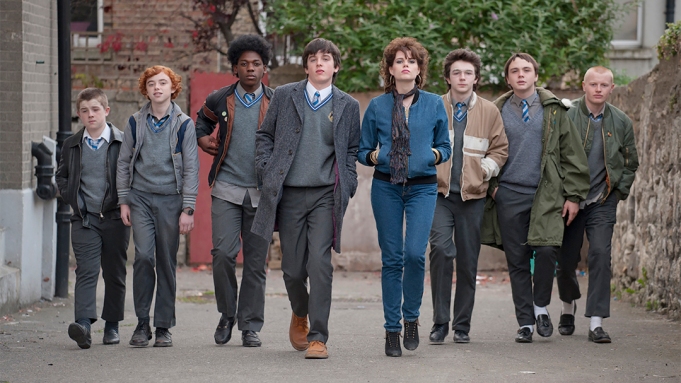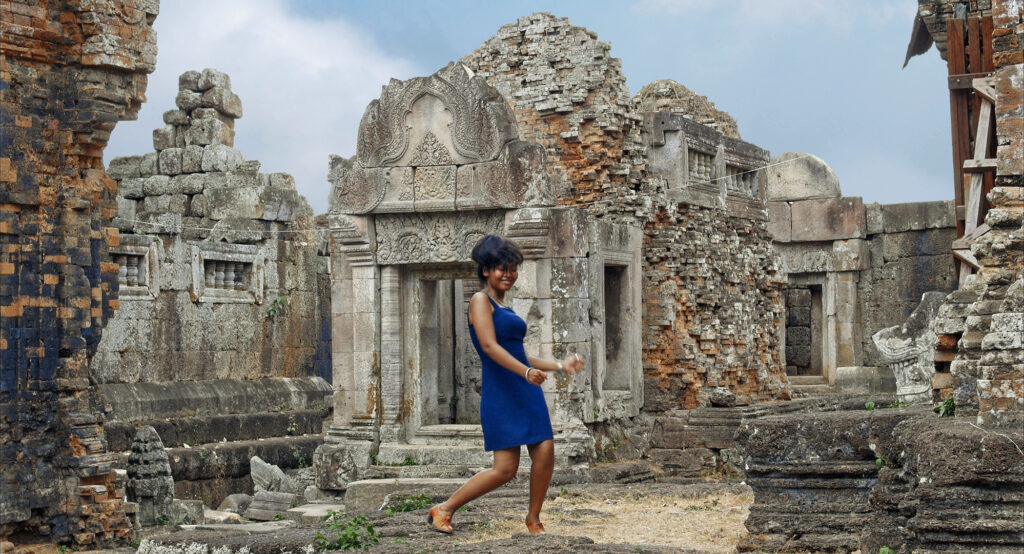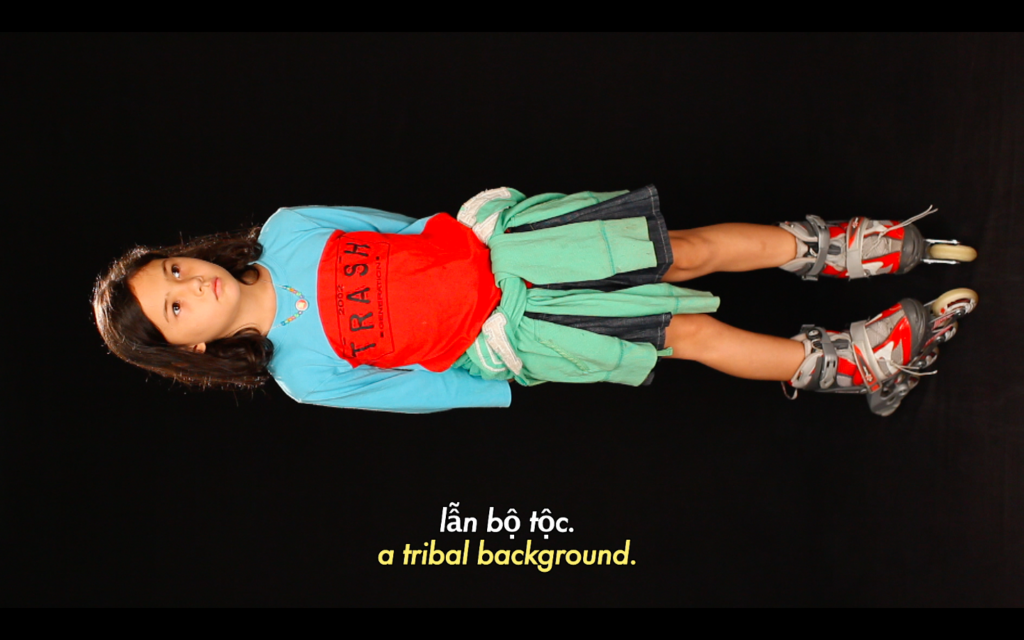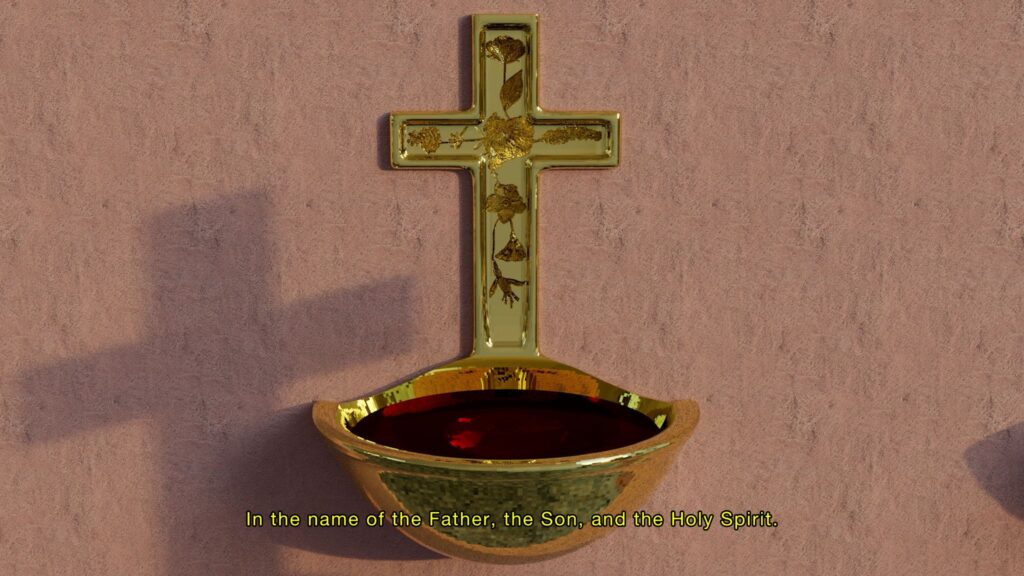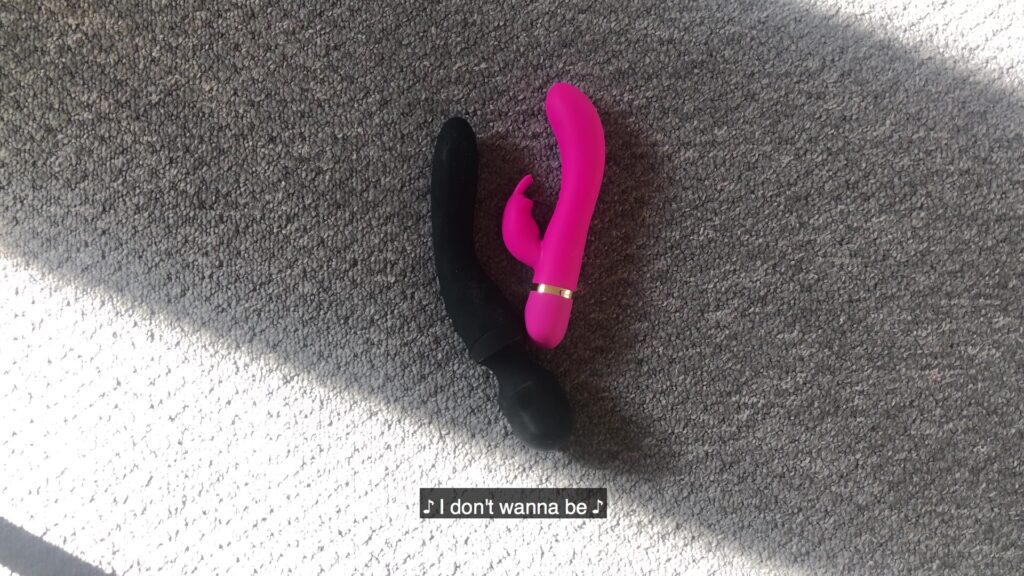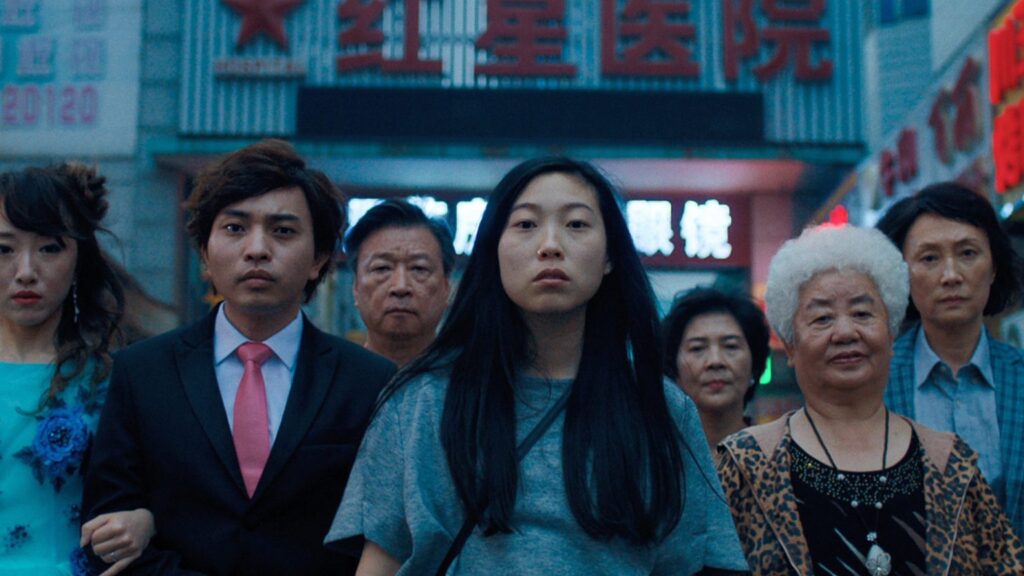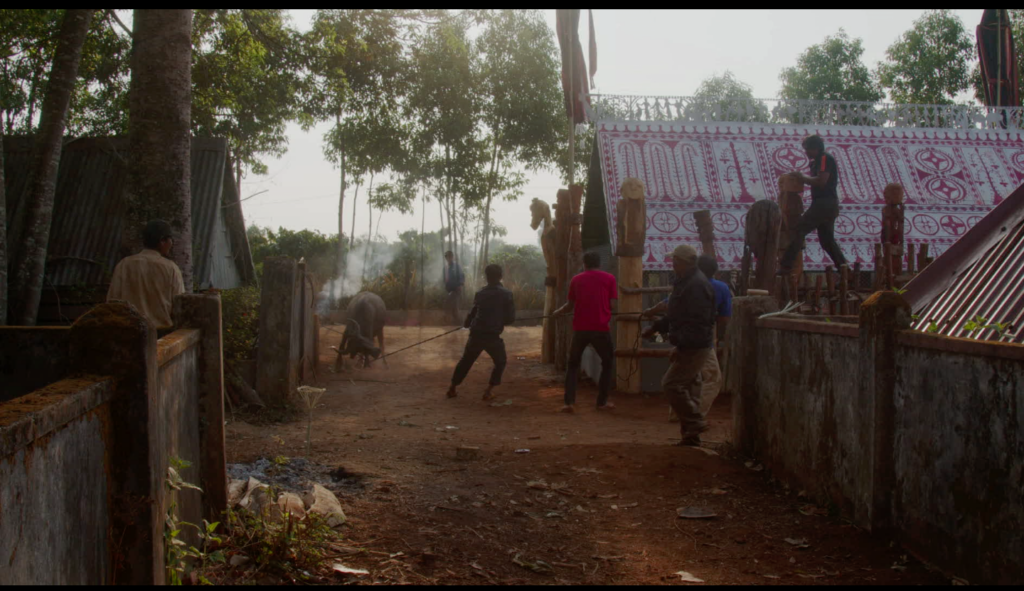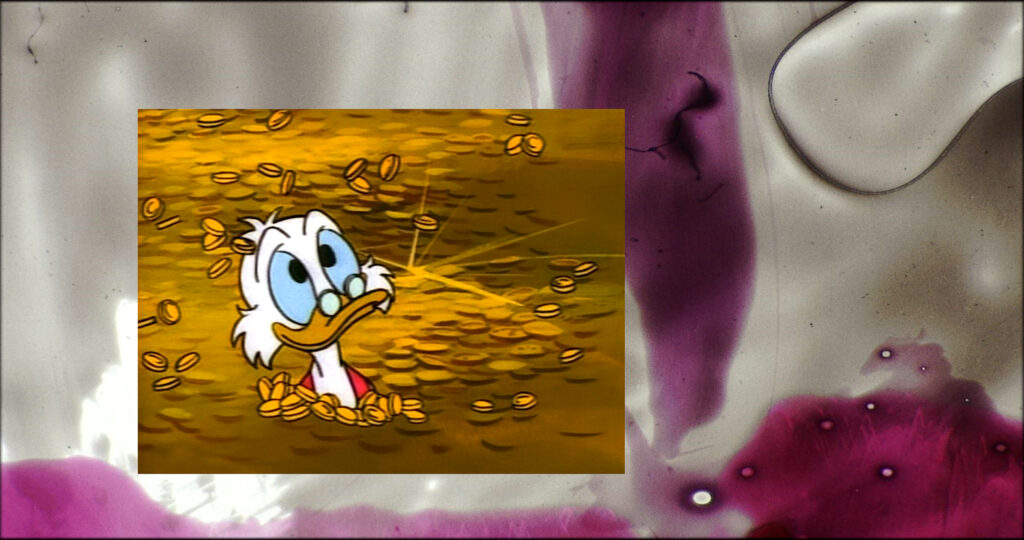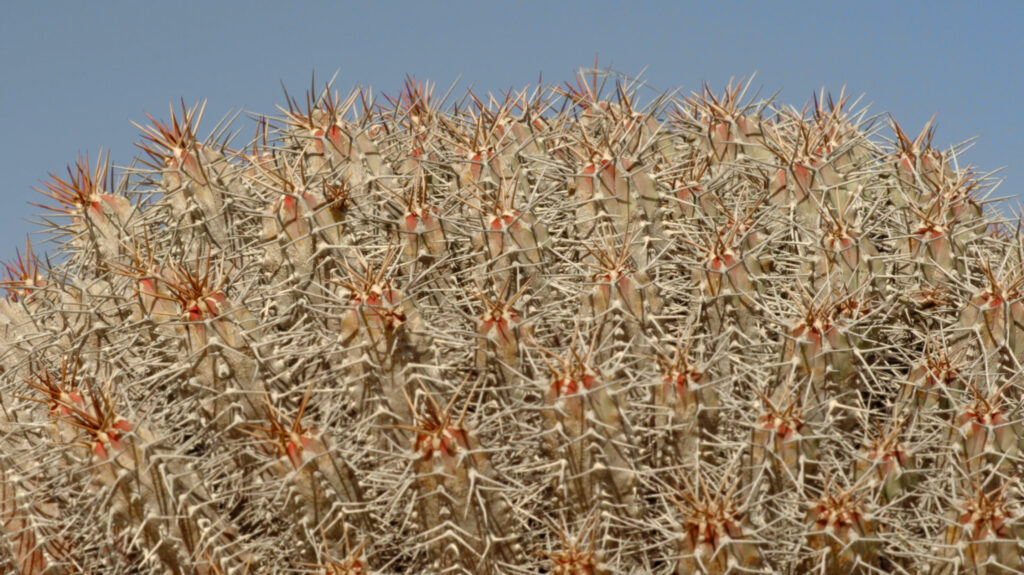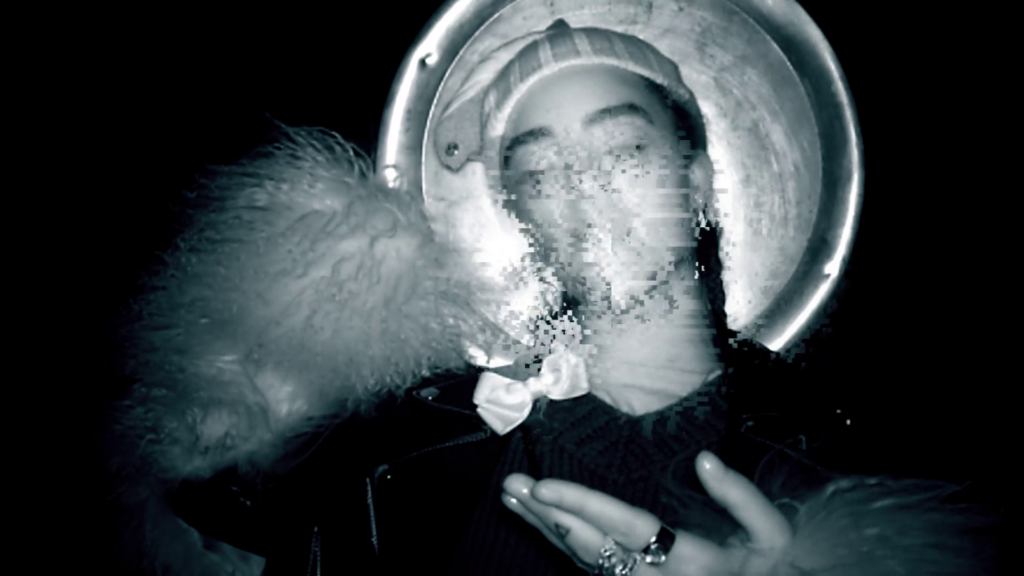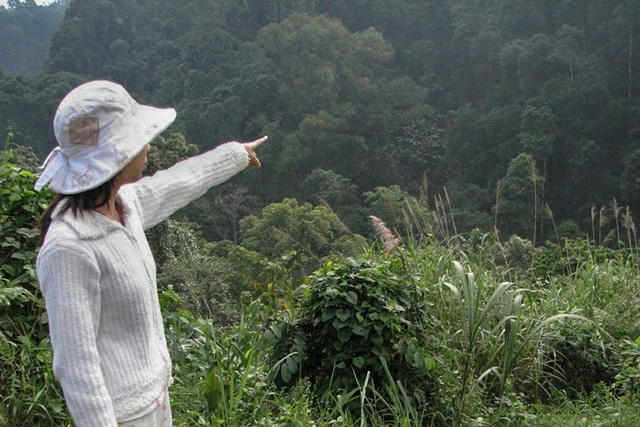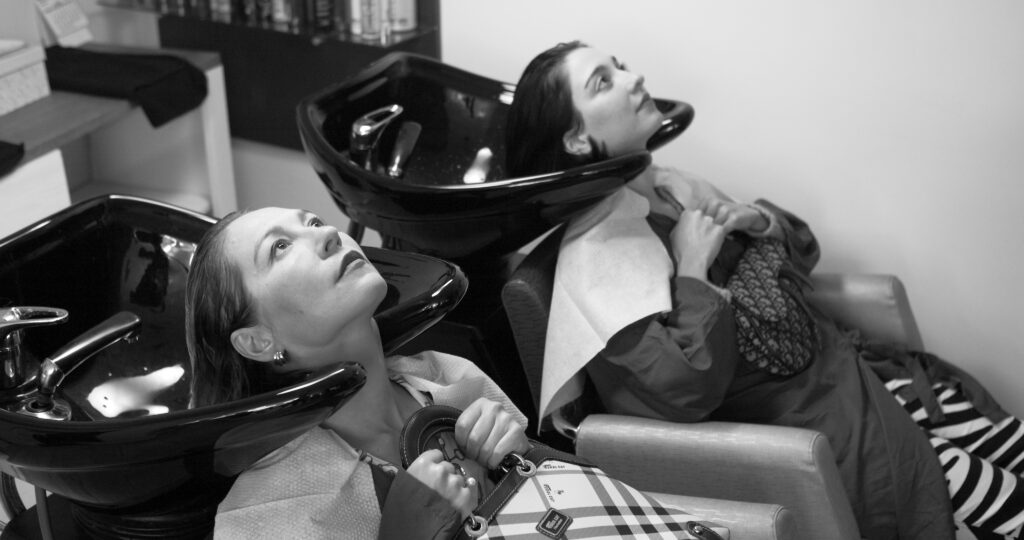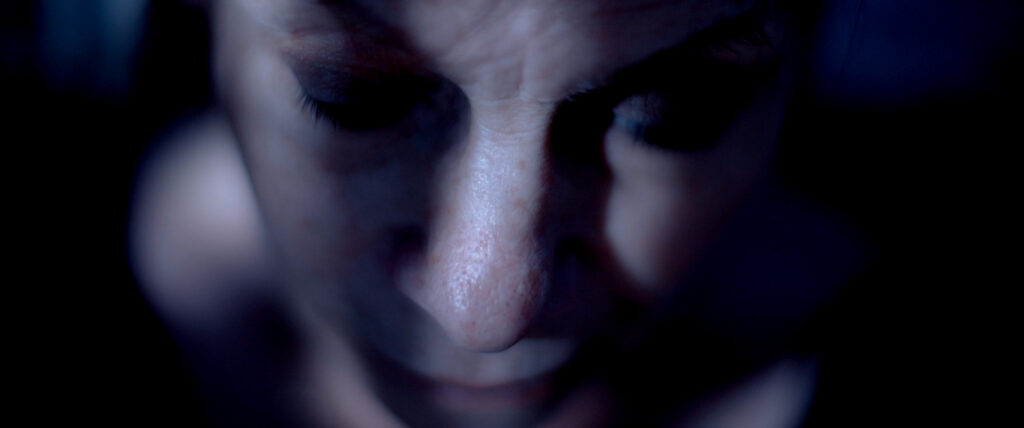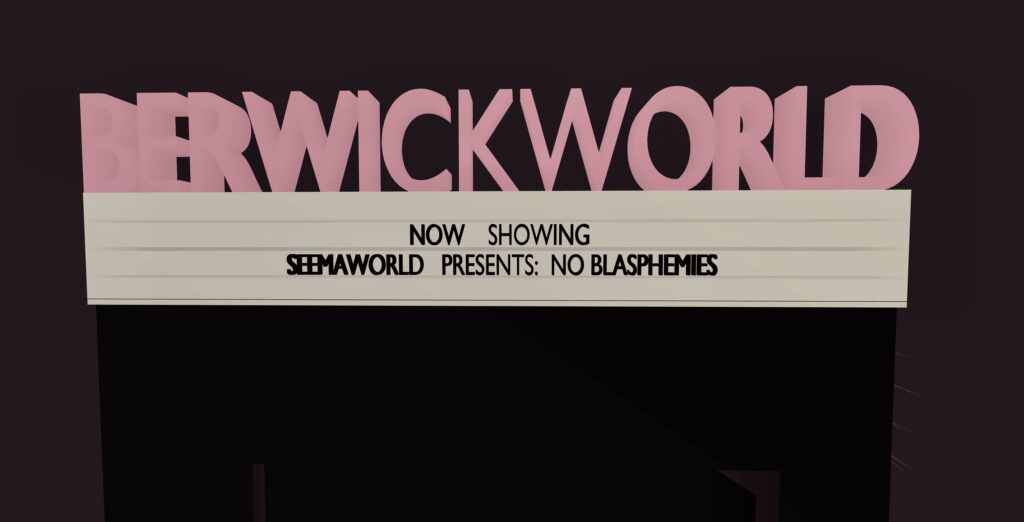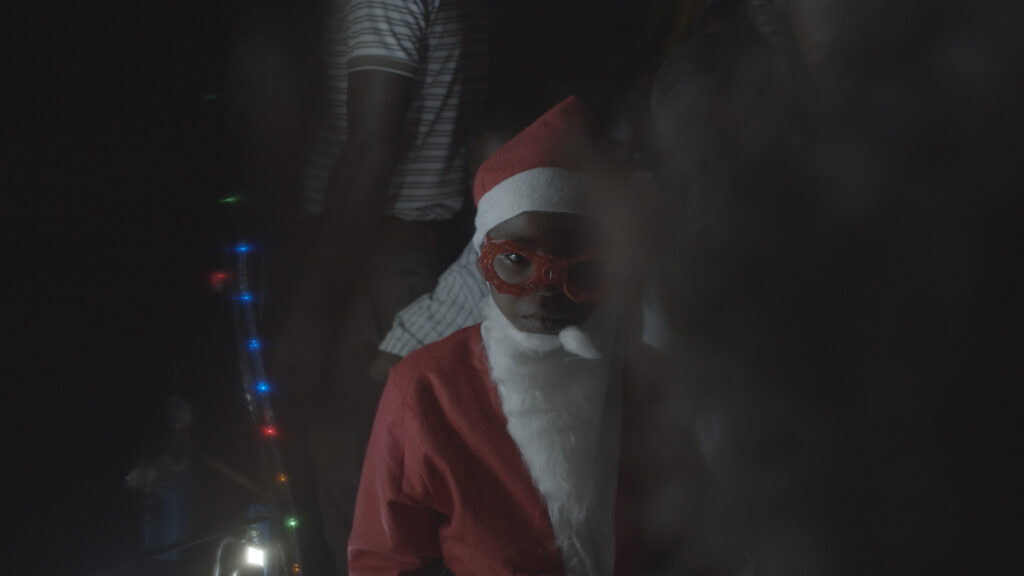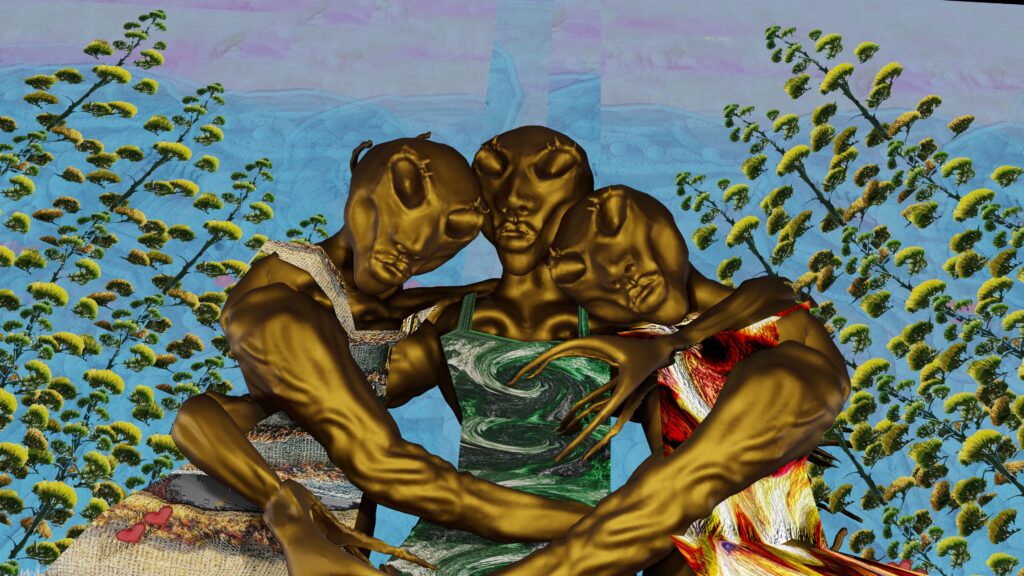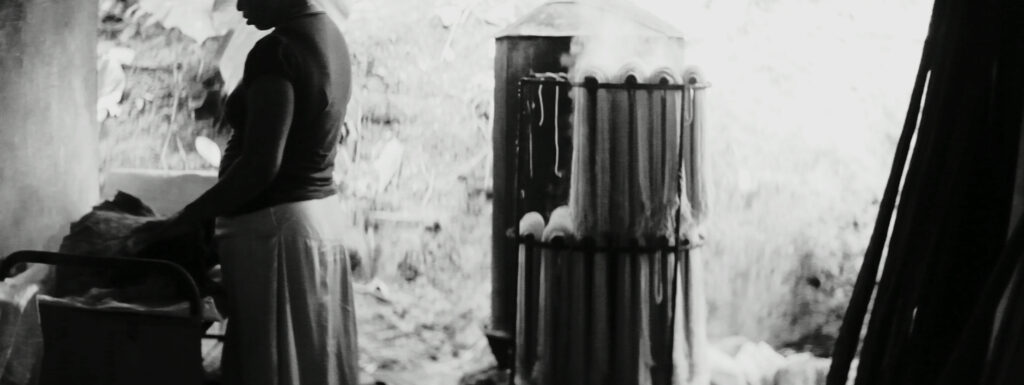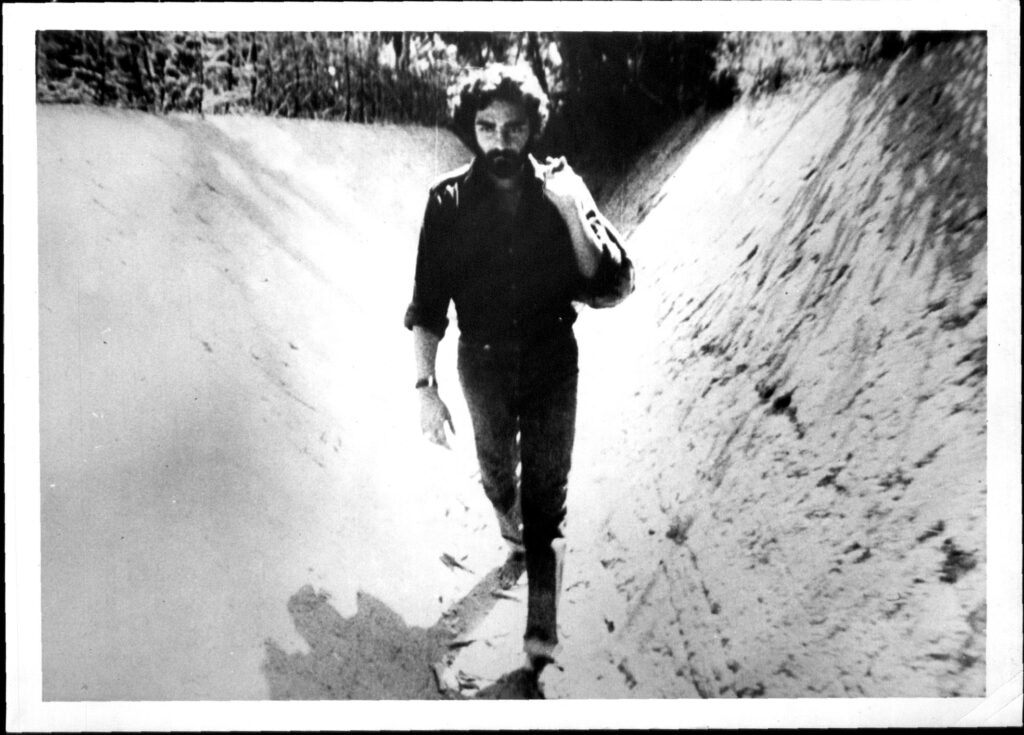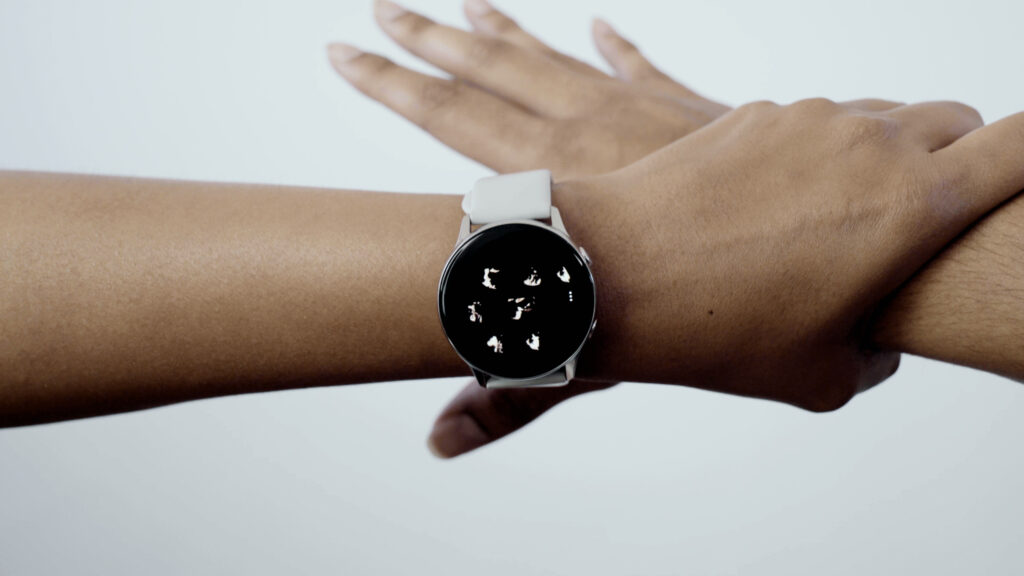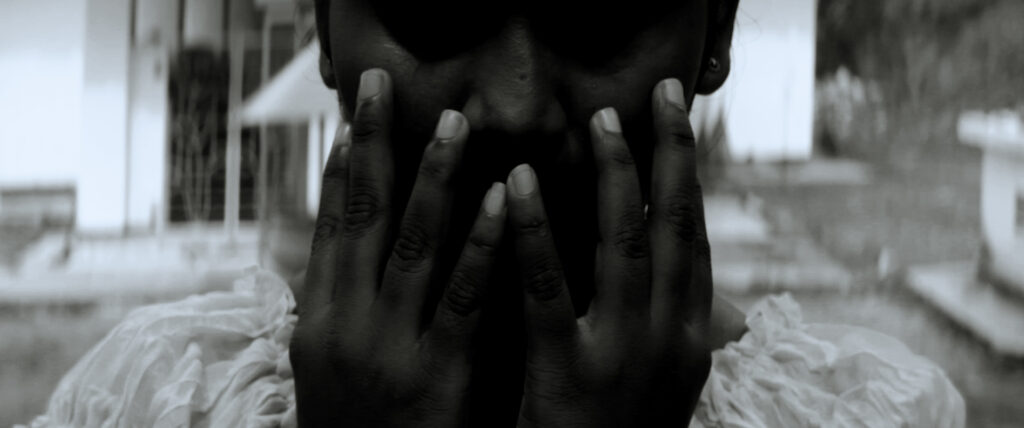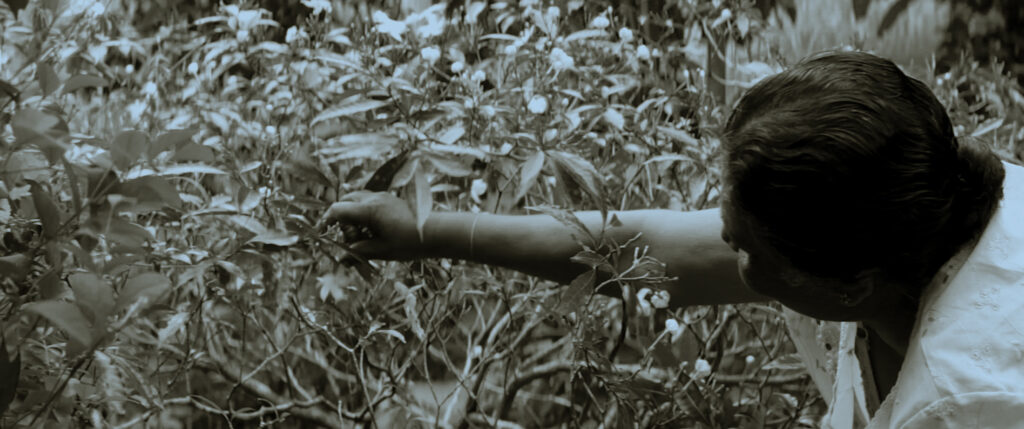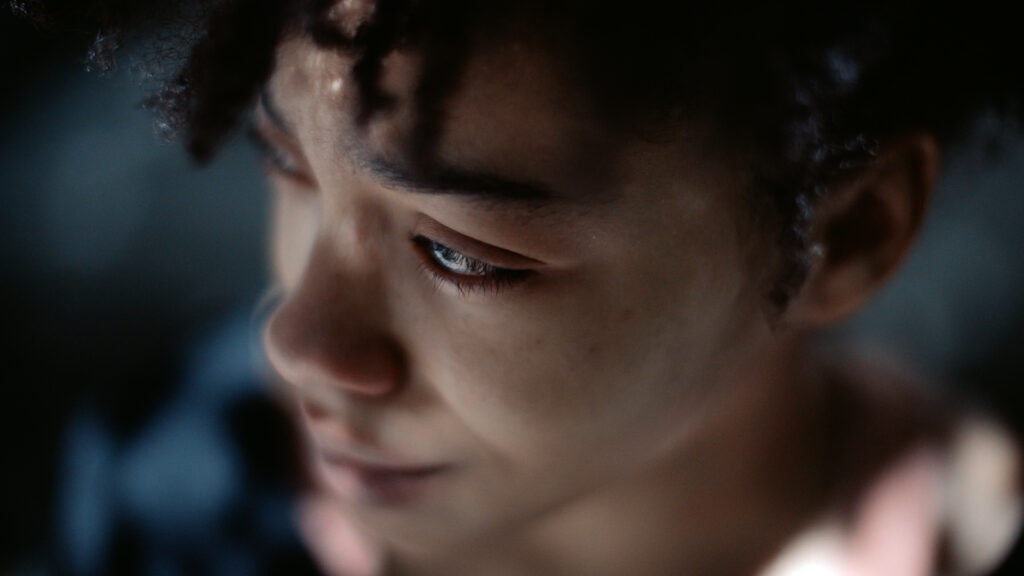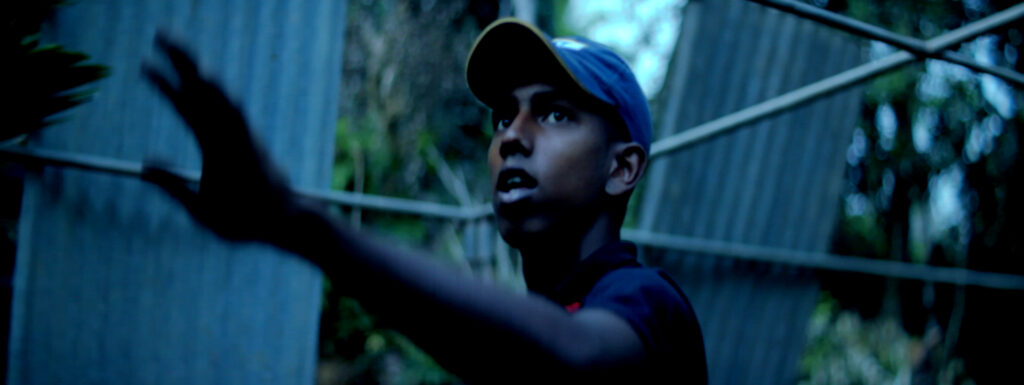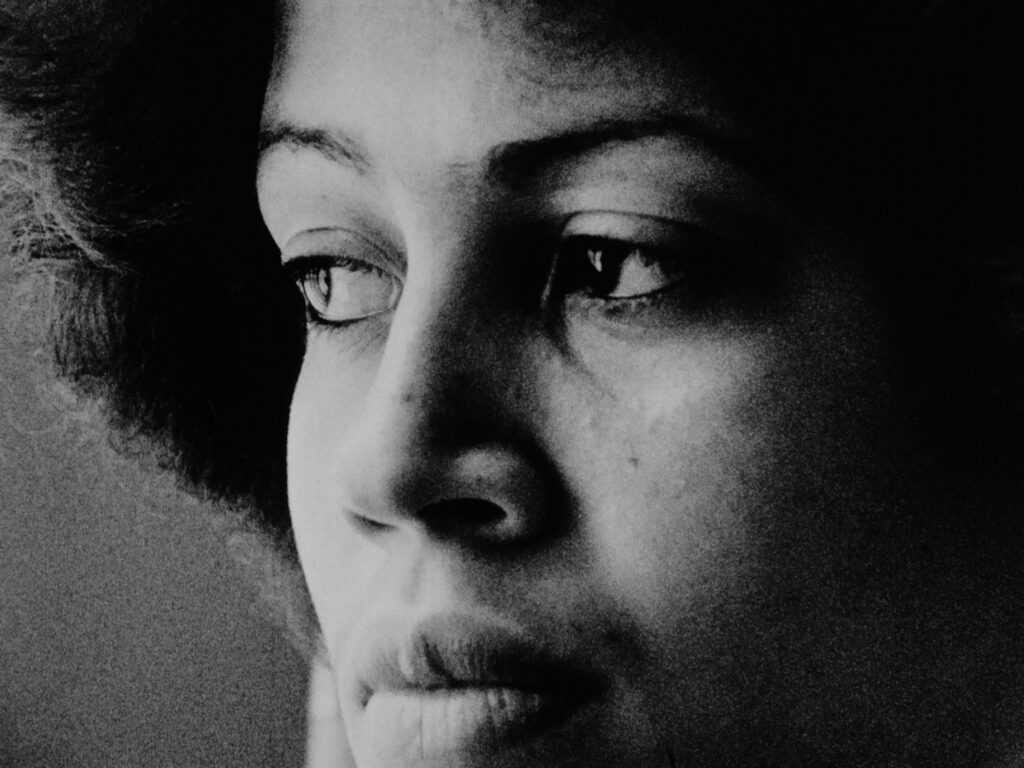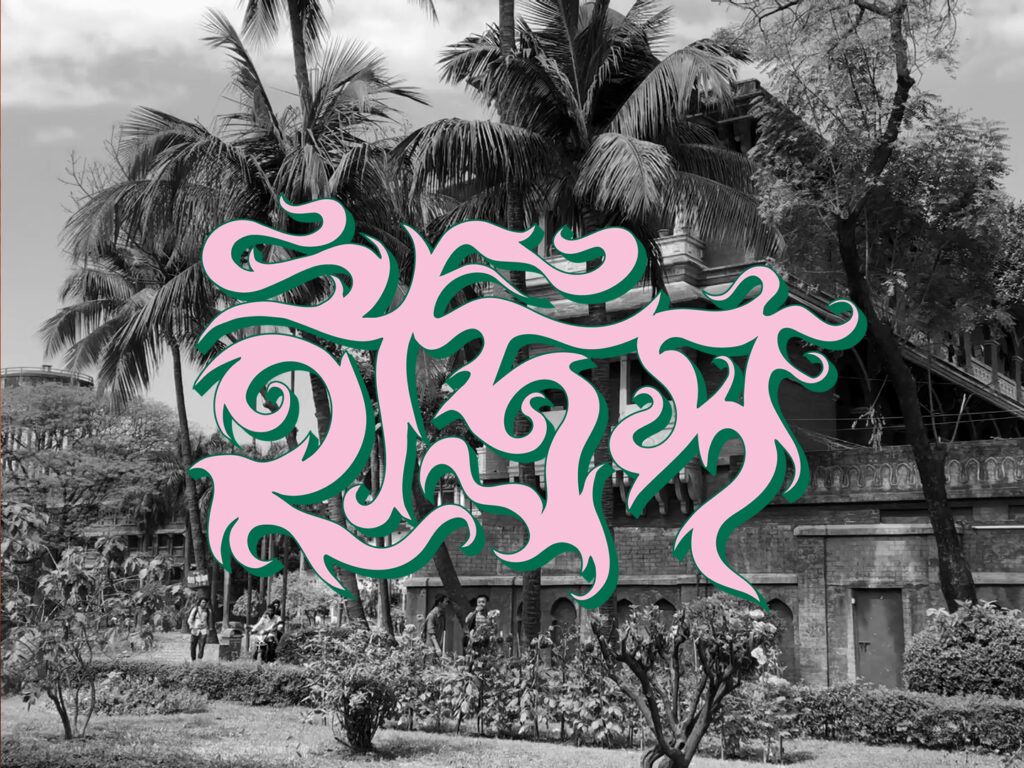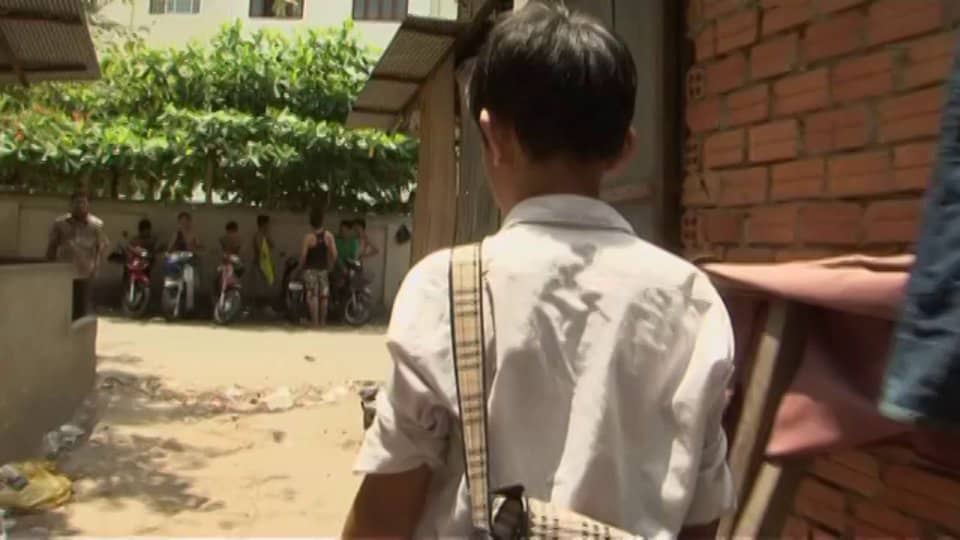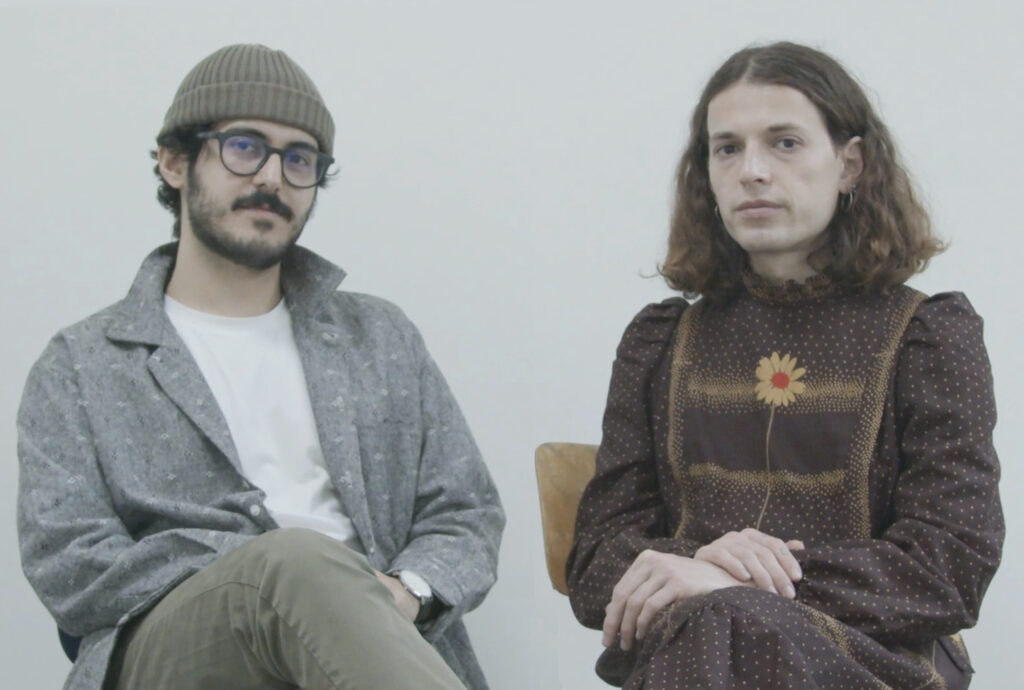
Rouzbeh Akhbari
Pejvak is an ongoing collaboration between Rouzbeh Akhbari (Tehran, Iran 1992) and Felix Kalmenson (Saint Petersburg, Russia 1987). Their films have screened in numerous international film festivals including at São Paulo International Film Festival, Doclisboa, Sharjah Film Platform, and Kasseler Dokfest, winning awards including the Prix George at Internationale Kurzfilmtage Winterthur, 2020. Their work has been exhibited at museums and galleries internationally including; MAC VAL (Paris), Van Abbemuseum (Eindhoven), M HKA (Antwerp), Z33 (Hasselt) and Si Shang Art Museum (Beijing).
Golden Slumbers is a feature documentary on the legacy and contemporary traces of the “golden age” of Cambodian cinema which emerged from the 1960s and into the 1970s. During this period, several hundred feature films were produced and exhibited in cinemas across the country, and even in some cases internationally. But the Khmer Rouge’s reign of terror from 1975 to 1979—which resulted in the deaths of over 3 million Cambodians—also put a halt to this flourishing national cinema. Director Davy Chou reckons with this loss of life and culture through finding remnants of this cinematic past among rogue photos, still-existing soundtrack music, traces of film studios in the land and most of all in the memories of the few who survived, among them actors, directors and cinema-lovers.
Run Time
A paean to Kenneth Anger, this film is depicts a short procession of colourful material and a mysterious woman lit by the sun.
Run Time
“The question always has been whether these stories of Hawai‘i have any worth to anyone in Gwangju, or vice versa. Furthermore, should the worth be the end of all stories? Why should one care, and how does one really care about the trouble beyond a national border, let alone the border of one’s skin? Here, does film educate about this method to care; or is it regenerating and readjusting the area of one’s skin?” —Sung Hwan Kim
Run Time
Last Night I Saw You Smiling finds filmmaker Kavich Neang documenting the final days of the White Building. An architectural landmark in Phnom Penh built in the 1960s, the building was earmarked for destruction in 2017. Originally built as social housing for moderate income tenants, the White Building stood as witness to the history of the past 50 years in Cambodia. After the building (and city) became empty due to the Khmer Rouge’s brutal regime in the 1970s, tenants relocated to a building that came into increasing disrepair while simultaneously nurturing a community of artists, educators and neighbours. Neang films residents packing up their lives in the final week before moving out, conversing about their own personal histories and how they intertwine with the White Building and Cambodia at large.
A reaction to the groundbreaking text by Swiss anthropologist Paul Wirz entitled “Exorcism and the Art of Healing in Ceylon,” this silent and hand processed film considers a history of colonialism and ethnographic practices in South Asia. At his mother’s village, Samarasinghe restaged an exorcism once performed on her in the early 1960s when she was a little girl. Possessed by the lecherous entity known as the Kalu Kumara, the Sanni Yakuma healing ritual was performed over a 12-hour period.
Run Time
Made between three locations, artist and filmmaker Sharlene Bamboat’s latest work is assembled through a call and response exchange of sound, text and image. Interested in the framework of voice, vibration, time, sound and language that quantum physics explores, Bamboat’s new film emerges from an exchange of theoretical entanglements but is practiced and rendered through bodily ones.
Run Time
Rock Bottom Riser is an immersive, exploratory and deeply inquisitive study of an island world at sea. The film fashions a layered and heterogeneous portrait of Hawaii through its cosmogony, its uncertain future and the scattered lens of the present. Through a combination of research, observation of the islands’ landscape and conversation with many different people who call it home, artist-filmmaker Fern Silva highlights the complexity and contradictions of a place which can be understood as beautiful and serene but also under constant existential threat.
Run Time
Through an expertly pitched blend of realistic fiction, Sunrise in My Mind shows a view of a beauty salon in Phnom Penh at night which sparkles like a jewel box. The patterned aquamarine wallpaper plays off of the many pink objects inside, including the shirt of the film’s protagonist Pich, a beautician whose mind is clearly elsewhere. Against the strains of a soul song from the early 1970s by Pan Ron, the co-workers’ conversation moves toward the guy who has a crush on Pich, to which she acts demure and with indifference (but also with a private smile to herself). But Lay, a deliveryman who rides a motorbike through the city at night, reliably shows up to the salon. After asking Pich to wash his hair, we witness a moment of intimacy, though it’s unclear whether this is real or imagined.
Run Time
A performance film consisting of a string of five slow motion portraits of a young woman—recalling the stillness of photographs. Each portrait varies in length and gesture as her myriad expressions invite our gaze.
Run Time
Filmmaker Zia Anger and movement artist Monica Mirabile present a performative conversation, working through their collaborative practice and a hypothetical future work.
Broadcast on Thursday 16 September, 7pm
Turn Left, Turn Right is a narrative feature following Kanitha (played by artist/filmmaker Kanitha Tith), a free-spirited young woman in Phnom Penh who doesn’t conform to society’s (and her mother’s) expectations. Easily prone to daydreams, Kanitha floats by working at a rock club and at a hotel, riding her motorbike across the city and generally being restless, unsettled and at times self-sabotaging. But this lifestyle is increasingly out of step not only with her mother’s demands, but also with her father’s deteriorating health. When she needs to step in and care for him, engaging with dreams might provide a potential solution to his suffering.
Fifth Cinema begins with a quiet statement “I am a filmmaker, as you know.” That text and what follows, by Maori filmmaker Barry Barclay, who coined the term ‘Fourth Cinema’ to distinguish Indigenous cinema from the established ‘First, Second, and Third Cinema’ framework, provides structure to Nguyễn’s hybrid essay film that moves on multiple cinematic and topical terrains. Eschewing voice in favour of the written word and juxtaposing moving images of the filmmaker’s own daughter with archival images of Vietnamese women seen through the lens of the “ship’s officers”, the film slowly leads the viewer through a narrative of colonialism, indigeneity and cinematic limitations in representation. —Nguyễn Trinh Thi
Run Time
Language folds and falls in on itself in this new video work by artist duo Cat and Éiméar McClay. Animated 3D tableaus of Catholic paraphernalia and strikes of elemental weather accompany the words. Together, they enact the historically fraught relationship between queerness and the Catholic church.
Run Time
In suspiration!, Taylor brings false promises made by the United Kingdom to the surface with pieces of news footage and a spoken testimony describing racism in the UK. Amongst this bleakness, moments of beauty shine through, indicating the possibility for reassurance and hope.
Run Time
In a village in central India, dedicated school teachers put their heart and soul into preparing a group of children for an entrance exam for a Government-run “School of Excellence.” Entrance Exam explores the stakes of the opportunities afforded by this continued, subsidised education for underprivileged children, as well as the many layers of struggle in this intense and surprising journey.
Run Time
Resisting the westernised reliance on images for creating narratives, telling stories and experiencing the world, How to Improve the World turns to music and sound as a way of perceiving through listening. Originally a 3-channel installation, this aurally centred work reflects on the past, present and future of indigenous cultures of the people in Vietnam’s Central Highlands.
Run Time
This screening will be accompanied with in person conversations with Éiméar McClay & Cat McClay (a body is a body is a body) and Rehana Zaman (Alternative Economies).
Run Time
Through Arabic poetry, collective history and what artist Sophia Al-Maria calls “an assemblage of exquisite cadaver moments”, Tender Point Ruin traverses the gifts, the vulnerabilities and the detritus of art-making.
Run Time
Hailstorm is based in the Narmada valley in central India, an area with extremely low levels of groundwater. Farmers here battle for survival, pitched against the vagaries of climate change. Following the events of a freak hailstorm over four seasons, the film unfolds the vulnerability and precarity of those that are at the sharpest end of global capitalism’s rapacious greed and the furthest from its benefits. —Jemma Desai
Nguyễn Trinh Thi is one of Vietnam’s leading contemporary artists. Her moving image work engages with the ways in which memory, history and representation are part of broader structures of power, the legacies of colonialism and war, and the erasure of indigenous Vietnamese cultures.
Nguyễn Trinh Thi’s Focus Programmes are supported by CREAM, University of Westminster and Centre for Screen Cultures at the University of St Andrew
Run Time
Alternative Economies was made in conversation with herbalist Rasheeqa Ahmad and financial services regulator Rachel Bardiger. The film discusses the imperialist exploits of the Disney character Scrooge McDuck, and the apparently radical yet deeply compromised promises of cryptocurrency. Between these two strands, possibilities for an alternative network of exchange and subsistence are sought.
Run Time
Back Inside Ourselves is an online exhibition inspired by S. Pearl Sharp’s Back Inside Herself which plays in our Essential Cinema Strand.
Featuring three recent works by filmmakers Ufuoma Essi, Tako Taal, and Rhiana Bonterre.
We recommend you find a quiet space, some headphones, and clear some time to explore the different elements of this work. The presentation plays on a loop opening out the possibility of durational repetitions, witnessing and revelation.
Available online from Friday 17 September coinciding with a 24 hour screening of S Pearl Sharp’s Back Inside Herself & an in conversation between the director and poet Sarah Lasoye.
Supported by Berwick Visual Arts.
Run Time
Informed by principles of psychogeography and human ecology, this non-verbal film suggests a mournful narrative involving humans and the nocturnal and crepuscular landscapes they inhabit.
Run Time
As the journey starts, wide empty landscapes make one wonder what one is looking for. A mysterious object? A crime scene? Something horrifying? The scenes are getting more and more specific, but they do not lead to any concrete solution—only an injury in place of a metaphor. —Nguyễn Trinh Thi
Run Time
Amalia Ulman’s debut feature is a dark comedy. El Planeta explores contemporary poverty, deception, class, and escapism through a tender mother-daughter relationship, played by Ulman and her real-life mother.
These are notes on planning and programming the Festival this year, open for comment on a google doc.
Fragments from documents that guided our planning and programming process are opened out for comment to accredited guests between 15-22 September after which we will host a discussion between Festival Director Peter Taylor, Head of Programming Jemma Desai and writer and programmer Abby Sun reflecting on the collective writing process.
Accredited guests will be able to access the document here from the 15 September, the public event on will take place on the 24 September and will be open to all ticket and pass holders.
Everyday states of being and decay are observed through the infinite scope of the cosmos and the restorative light which emanates from it, driving cinematic and photographic impulses.
Run Time
An essay film in the form of a letter exchange, Nguyễn’s personal and poetic film explores the complex legacy of cultural and historical occupation, its ongoing presence in the indigenous Cham community, and her role as an artist.
Run Time
In Tim Leyendekker’s debut feature film, victims, perpetrators and their observers offer entangled viewpoints on the 2007 Groningen HIV case in the Netherlands. In this case, three men hosting sex parties drugged others and injected them with their own HIV-infected blood. Feast explores the uneasy complexities, motivations, assumptions and projections of those involved and those watching: the media, the diagnosing professionals, and us, the viewers.
This screening will be accompanied with an in person conversation with Tim Leyendekker and will take place at The Maltings in Berwick-upon-Tweed.
Run Time
SEEMAWORLD is an immersive, multi-channel realm and streaming facility. It’s comprised of the mimicry of multiple amenities and services—which act as portals to a specific aspect of SEEMAWORLD. An interactive installation, it shows born-digital artefacts alongside digitised works of traditional media.
As a colony of SEEMAWORLD, BERWICKWORLD transports viewers firmly into the cinematics of the cinema and magnifies Fan Labour as behaviour, thought and form. —Seema Mattu
Available online from Monday 13th September
The condition of distance, genetic to the ethnographic image, traces the elusive qualities of Samarasinghe’s mother’s past and persona as a woman of partial Chinese heritage.
Run Time
After an election that has shaken its already precarious political and economic stability, DR Congo is trying to revive its project to build Africa’s largest power plant on the Congo River. Kinshasa, the capital, remains in darkness while its population struggles for access to light. Rising Up at Night subtly portrays a population that is reinventing itself in spite of everything, in an environment plagued by the violence and beauty of Kinshasa’s nights and the uncertainty of the next day.
Run Time
Galb’Echaouf delves into the idea of amnesia as the result of an extreme and destructive political context which generated shame and guilt. Conflicts put an end to freedom of movement, and most importantly, to the transmission of types of knowledge passed down over centuries. It is fuelled by the statements and silences of the inhabitants of the region, but also by non-human knowledge present in plants and landscapes.
Run Time
When Amongst Our Own is an online work and exhibition designed by Danielle Braithwaite Shirley produced and commissioned by Berwick Film & Media Arts Festival, Circuit NZ, New Zealand and Spike Island, Bristol. It includes a sound work by Shenece Oretha, a publication by Ebun Sodipo and a film by Day Eve.
Available online from Monday 13th September
A silent poem reflecting on the place of the filmmaker’s mother’s birth and her first traces on earth. A generational portrait of South Asian “makers” becomes a perceptual voyage into memory, experience and touch.
Run Time
Suneil Sanzgiri’s recent video trilogy is shown here, in full, for the first time. The series is bookended by his attempts to recreate the landscapes of his father’s birth place in Curchorem, Goa. All three films utilise an aesthetics of distance and proximity to gesture to tensions, possibilities and replications when we search for ourselves in the remnants of colonial histories.
Run Time
A collaborative film made by Berwick Young Filmmakers (a group of local 12–14 year olds). The film was produced over five days of workshops led by artist Kimberley O’Neill, which introduced the group to digital filmmaking and documentary techniques. The film that the Berwick Young Filmmakers have produced together, explores the theme ‘Reworld’—speculating on what life in the year 2031 could be like and imagining how people, technology and nature may change in the near future.
Run Time
Rajee Samarasinghe’s body of work tackles contemporary sociopolitical conditions in Sri Lanka through the scope of his own identity and the deconstruction of ethnographic practices. BFMAF 2021 presents a series of Samarasinghe’s 12 short films shot over a decade—an archive of images navigating the terrain of migration, memory, and impermanence.
Run Time
Described by S. Pearl Sharp as “a visual poem on identity”, Back Inside Herself shows a Black woman finding her own sense of self and rejecting hegemonic societal expectations of who she should be and how she should behave.
Run Time
The Festival opens with the world premiere of Idrish (ইদ্রিস) by Adam Lewis Jacob (UK, Bangladesh, 2021).
Idrish acts as an urgent and potent piece of anti-deportation activism. With reports of deportation flights regularly in the news, the film is rich with resonance to our current moment. In one striking sequence, footage of a protest march gives way to staccato editing and propulsive sound design by Claude Nouk, who re-uses and manipulates archival sounds to transform the film into a powerful rallying cry. Radically reanimating the documentary form, Jacob enlivens the archive to tell a vital history.
Run Time
Kavich Neang’s first film is a short documentary following Sory Chan, a 14-year-old boy who is living in Phnom Penh apart from his family. A student of Cambodian classical music, Sory lives with his mother’s friend after his mother fled a debt she couldn’t afford to pay back. Each evening after class, he carries a scale outside in a popular part of the city and asks people to weigh themselves for a small amount of money. In this urgent film, we witness Sory’s day in class, his nightly routine and a particularly difficult conversation with his mother who he meets on the street.
Run Time
This associative stream of visuals, culled from the past, reflect on the roles of art, labor and journalism in contemporary Sri Lanka, facing a dubious future ahead. Memory and ethnographic deconstruction cascade in an obliterated form, forging a dire and prescient assemblage.



